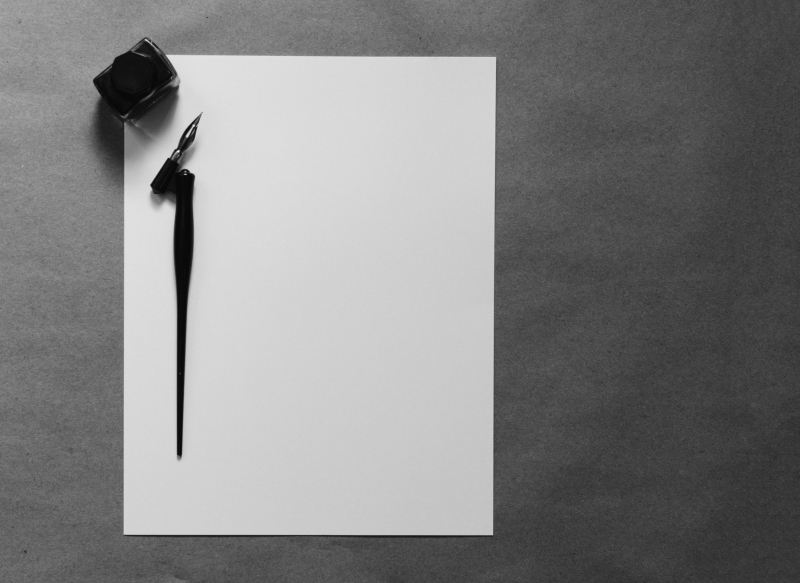Apparently, these days writing is considered to be a form of therapy, with the meditative morning pages recommended by every influencer on the planet. It is said to clear your head for other ideas throughout the day, let you verbalize and process your thoughts and feelings, and generally help you become more aware of the world around you. For some reason, however, I can’t fully embrace this morning pages idea – it doesn’t feel serious enough for my slightly pretentious self. As if you are “not paying respect” to this mysterious art of transporting the images in your head onto rusty notebook pages.
So, I decided to complete a similar challenge but in a way that was closer to heart – originally, I thought I would write a post a day for my personal blog that truly needed a bit of a revival (I am telling you, it was a truly busy month). I was hoping to find a new angle, to make the topics flow naturally together with the words I’d use to tackle them.
Just like with any long-lasting project, it is important to pinpoint any potential or actual reasons that may lead you to procrastinating about it or even abandoning the whole idea. And just like with any creative endeavor, when writing something you (or is it just me?) always want it to be perfect, especially when it’s a public thing – this perfection is expressed both in finding the right words to express an idea and making these words entertaining to read. Then, as if that was not enough of a burden to carry on your shoulders, there is the guilt of not practicing or posting regularly enough that slowly but steadily grows with every date missed, every page left blank. Ultimately, this leads you to feeling weak, unable even to fulfill a promise you gave yourself. But this is not the way to go, is it?

Credit: Patrick Tomasso (@impatrickt) on Unsplash.com
So, on the very first day of my challenge, as I stared into the infinitely empty page, I tried to view this as an infinity of opportunities and not the terrifying abyss that it seemed to be before. In a couple of deep breaths, my fingers took to the keyboard and I didn’t even notice how the first two paragraphs appeared, as if out of nowhere. Weirdly, I was writing in second person – something I hadn’t attempted before not only on my blog, but anywhere else. Yet it came naturally – a new perspective, so sought-after, was finally found. Puzzled, as I was expecting discoveries to come later on in the challenge, I powered on and completed this first post in just under an hour. I felt invincible.
This sudden gift of inspiration helped me find the topic for the next days of the challenge – I was continuing the story, still exploring the already not-so-weird second person. Everything about it felt new and I really looked forward to completing each small chapter in the evening or early morning.
Unfortunately, you can’t be invincible forever – and for the last two days I have been unable to add new chapters to my story. You might say this is a challenge failed, but I refuse to call it that. Firstly, because I intend on sticking through three more weeks. And secondly, because I have learned something along the way that I am ready to share.

Credit: Mike Tinnion (@kellysikkema) on Unsplash.com
The biggest lesson is that I can write anywhere. And almost in any state, regardless of how long my day was or how inadequately few hours I spent sleeping. I find this key to battling procrastination, for there are no more reasons to wait for those perfect circumstances (the effect, as I was pointed out, known as the toolbox fallacy). A solid post can be written in the subway on your daily commute – and you may as well use it as a metaphor for any other task you need to accomplish. Of course, it is important to evaluate the time and resources needed correctly, but maybe once in a while you should just try brute-forcing through it, dropping all the piety.
Then come the discoveries shared by others who have attempted the plunge – you stop looking for perfection and learn to get into “writing mode” quickly, or otherwise your power might not last long enough to finish the piece, so you’d just fall asleep over it. Generally, having a limited time to perform something leaves you focused on the goal with no distractions.
But what about being unable to actually complete the week of daily writing? I think the lesson here is two-fold. On the one hand, it is another chance to accept mishaps calmly, without immediately writing yourself off for a small mistake. There will be another day and another try.
On the other hand, it’s a nudge towards my overly optimistic time management, leading me to squeeze five more tasks that I can humanly complete into each day. And then, of course, that omnipresent hope of waking up at 6:30 am next day to tick them all off. Bottom line: assess your workload accurately. Maybe you already knew that? Well, then I’ll just remind myself yet again.

Credit: Glenn Carstens-Peters (@glenncarstenspeters) on Unsplash.com
Needless to say, all of the above can be applied to literally any long-standing task – be that your thesis, a massive homework assignment, or anything else you put off all the time. I am happy to have made the mistakes for you so that you can happily skip them.
We’ll see how the next three weeks go, but the benefits already brought to me by this challenge are enough to make it worthwhile. Turns out, self-improvement is fun!
Have I succeeded in inspiring you to take up a new experiment just to battle November moodiness? If so, take a look at our other experiments involving a life-changing office decluttering and a courageous zero-waste living endeavor.




